Serena Williams Doesn’t Blame Drake For Losing: I don’t think that was fair.
Arguably the world’s best athlete, Serena Williams definitely is winning on the court and off. With more major titles than any active player, Serena is just one title away from tying Steffi Graf’s singles record. The youngest of her siblings, Serena broke into the predominantly white sport alongside her sister Venus. Recently guest starring beside Beyonce in “Lemonade” and with an upcoming documentary, Serena, which will air on Epix this month, Williams seems to have it all. She sat down with Glamore to discuss being Serena. Peep a few excerpts.
If she considers she’s the greatest:
Oh my gosh, I don’t know. That’s so hard to say. I try to be the best that I can be every day. I have bad days. I had a bad day the other day. I hit for only, like, 30 minutes, and I stormed off the court. But that was the best I could do on that day. So am I the greatest? I don’t know. I’m the greatest that I can be.
On losing:
I work harder. I study to see where I went wrong. But I carry the loss. My coach has said to me, “When you win a match or a tournament, you don’t even think about it—the very next minute you’re like, ‘Now I’ve got to focus on Wimbledon.’ You should take the losses the same way.” I need to look at those losses as learning experiences.”
On whether Drake was responsible for her recent loss at the U.S. Open:
No. I don’t think that was fair. I’m the one who’s playing, who’s making mistakes or making winners. I’m not one to blame anyone else for anything. And I don’t think anyone else should either. I played a really good opponent that day. And I wasn’t at my best.
On playing past the age of 30:
Who says that your thirties is when you’re supposed to be done? I would like to know who made that rule! I was talking to my mom one time, like, “Gosh, I’m 30.” And she’s like, “In your thirties you’re even stronger than in your twenties.” I didn’t believe her, but I have played better in my thirties. And I played pretty well in my twenties, don’t get me wrong! But my consistency is better, my momentum is better, my wins are quicker.”
On the much talked about discussion of equal pay:
These sports have a lot of work to do. And I really hope that I can be helpful in that journey because I do believe that women deserve the same pay. We work just as hard as men do. I’ve been working, playing tennis, since I was three years old. And to be paid less just because of my sex—it doesn’t seem fair. Will I have to explain to my daughter that her brother is gonna make more money doing the exact same job because he’s a man? If they both played sports since they were three years old, they both worked just as hard, but because he’s a boy, they’re gonna give him more money? Like, how am I gonna explain that to her? In tennis we’ve had great pioneers that paved the way—including Venus, who fought so hard for Wimbledon to pay women the same prize money they pay men, and Billie Jean King, who is one of the main reasons Title IX exists.”
On her big sister Venus:
It’s remarkable she plays at all, given her Sjögren’s syndrome [an autoimmune disorder that can cause joint pain]. She’s back, winning tournaments. She didn’t allow society to tell her, “You have this disease; you can’t do that anymore.” I look at her, like, “She’s not playing at 100 percent. You are. You don’t have excuses.” Knowing what she went through helped me try to be a more positive person.”
On her fashion line:
It’s definitely not something I just slap my name on…. My mom taught me how to sew when I was super young; I used to make clothes for my dolls. When I finally went to [fashion design] school [in 1999], I really took to pattern making. Everyone in class was good at something; I was the person, if you need help with your patterns, you come to me and I would help you out.
On her favorite poet, Maya Angelou:
I love “Phenomenal Woman.” The experiences she had of being African American in the U.S.—that itself is a task. I appreciate the hardships she went through for our generation. I’m super influenced by the black people that paved the way for us.”
On leaving a legacy:
I never thought about leaving a tennis legacy. I always thought about leaving a legacy of fulfillment, living out your dreams, and giving back. I’m proud to have opened [two] schools in Africa and one in Jamaica [through the Serena Williams Fund and its partners]. I was given a lot. I was given two parents. That’s already starting above a lot of kids. And then I was given the opportunity to play tennis and parents who supported that. I feel I can give back. I never left my roots. You can identify me as someone that didn’t become high and mighty. Humility is a defining [trait] all of us can forever learn, and I try to be as humble as anyone can be.”
By @andreadiggs


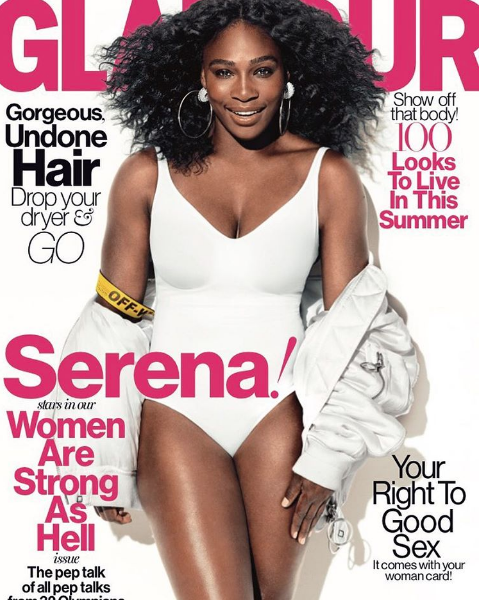

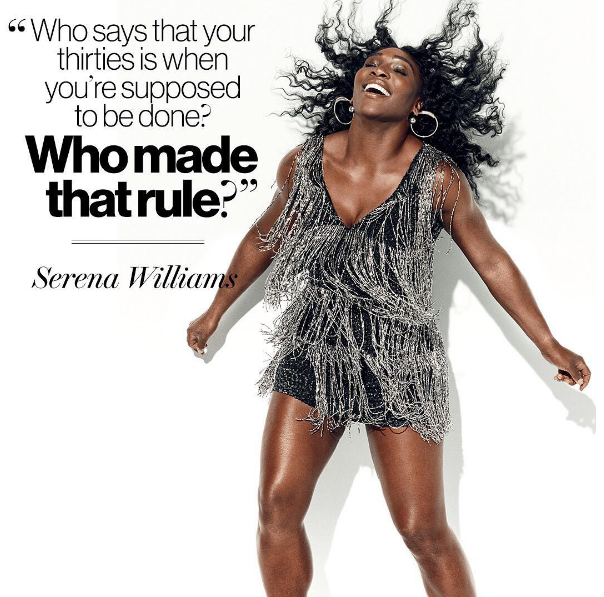
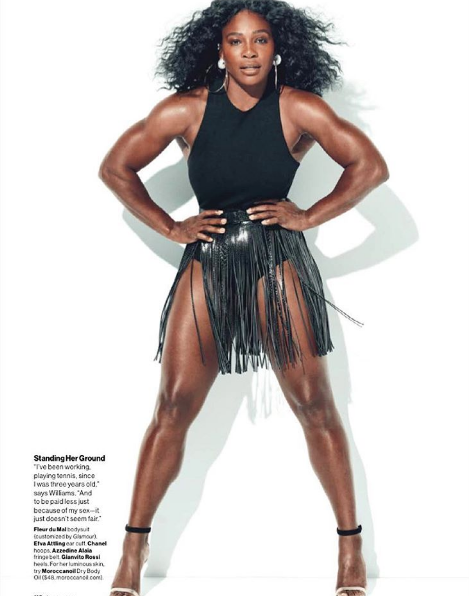
 Previous Article
Previous Article Next Article
Next Article SZA Reveals Voice Is NOT Permanently Damaged, Performs At Firefly Music Festival
SZA Reveals Voice Is NOT Permanently Damaged, Performs At Firefly Music Festival ![[INTERVIEW] Omarosa Talks New Boyfriend, Groupies & Why the Public Should Give ‘Preachers of LA’ A Chance](https://thejasminebrand.com/wp-content/uploads/2013/10/The-Jasmine-Brand-Omarosa-12-Years-of-Slavery-Premiere.png) [INTERVIEW] Omarosa Talks New Boyfriend, Groupies & Why the Public Should Give ‘Preachers of LA’ A Chance
[INTERVIEW] Omarosa Talks New Boyfriend, Groupies & Why the Public Should Give ‘Preachers of LA’ A Chance 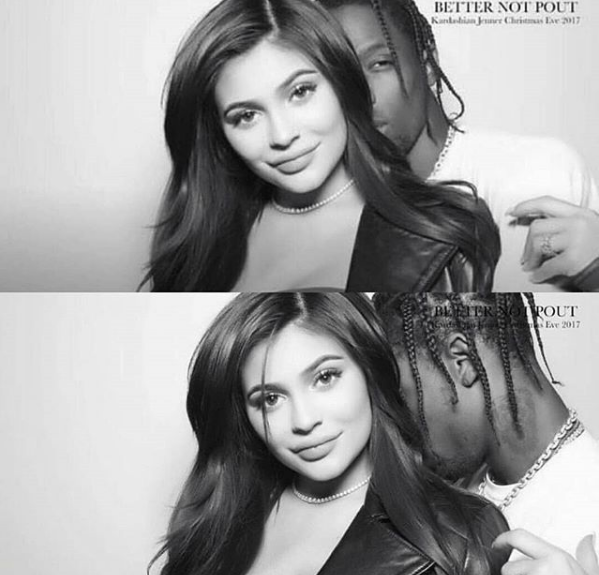 Pregnant Kylie Jenner & Boyfriend Baby Daddy Travis Scott Attended Kris Jenner’s Holiday Bash
Pregnant Kylie Jenner & Boyfriend Baby Daddy Travis Scott Attended Kris Jenner’s Holiday Bash ![[WATCH] James Brown Movie, ‘Get On Up’ Trailer Released!](https://thejasminebrand.com/wp-content/uploads/2014/05/james-brown-movie-get-on-up-the-jasmine-brand-620x564.png) [WATCH] James Brown Movie, ‘Get On Up’ Trailer Released!
[WATCH] James Brown Movie, ‘Get On Up’ Trailer Released! ![Kelly Rowland Event Interrupted By Animal Rights Protestors [VIDEO]](https://thejasminebrand.com/wp-content/uploads/2017/04/kelly-rowland-animal-fur-protestors-the-jasmine-brand.jpg) Kelly Rowland Event Interrupted By Animal Rights Protestors [VIDEO]
Kelly Rowland Event Interrupted By Animal Rights Protestors [VIDEO]  Keyshia Cole, Chris Brown, Trey Songz Spotted Partying in Hollywood
Keyshia Cole, Chris Brown, Trey Songz Spotted Partying in Hollywood ![[Photos] More Adorable Moments of Beyonce, Blue Ivy & Jay Z](https://thejasminebrand.com/wp-content/uploads/2014/01/beyonce-backstage-beyone-updates-tumblr-2014-the-jasmine-brand-620x600.jpg) [Photos] More Adorable Moments of Beyonce, Blue Ivy & Jay Z
[Photos] More Adorable Moments of Beyonce, Blue Ivy & Jay Z 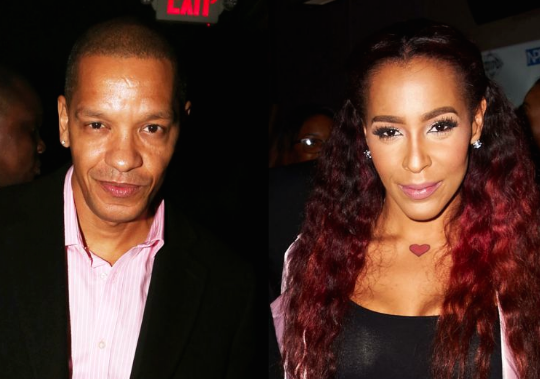 Amina Buddafly To Peter Gunz: I’m Disappointed w/ You As A Father!
Amina Buddafly To Peter Gunz: I’m Disappointed w/ You As A Father!